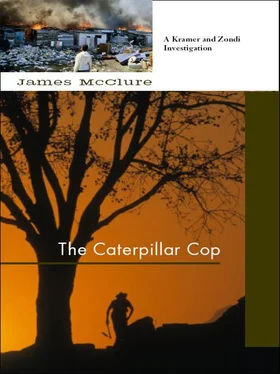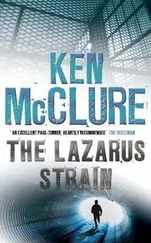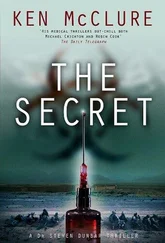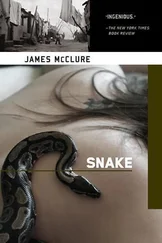James McClure - The Caterpillar Cop
Здесь есть возможность читать онлайн «James McClure - The Caterpillar Cop» весь текст электронной книги совершенно бесплатно (целиком полную версию без сокращений). В некоторых случаях можно слушать аудио, скачать через торрент в формате fb2 и присутствует краткое содержание. Жанр: Полицейский детектив, на английском языке. Описание произведения, (предисловие) а так же отзывы посетителей доступны на портале библиотеки ЛибКат.
- Название:The Caterpillar Cop
- Автор:
- Жанр:
- Год:неизвестен
- ISBN:нет данных
- Рейтинг книги:4 / 5. Голосов: 1
-
Избранное:Добавить в избранное
- Отзывы:
-
Ваша оценка:
- 80
- 1
- 2
- 3
- 4
- 5
The Caterpillar Cop: краткое содержание, описание и аннотация
Предлагаем к чтению аннотацию, описание, краткое содержание или предисловие (зависит от того, что написал сам автор книги «The Caterpillar Cop»). Если вы не нашли необходимую информацию о книге — напишите в комментариях, мы постараемся отыскать её.
The Caterpillar Cop — читать онлайн бесплатно полную книгу (весь текст) целиком
Ниже представлен текст книги, разбитый по страницам. Система сохранения места последней прочитанной страницы, позволяет с удобством читать онлайн бесплатно книгу «The Caterpillar Cop», без необходимости каждый раз заново искать на чём Вы остановились. Поставьте закладку, и сможете в любой момент перейти на страницу, на которой закончили чтение.
Интервал:
Закладка:
“Sorry, Doctor.”
His tone was so surly that Strydom looked up in surprise. Van Rensburg had always been unbearably sycophantic-this was indeed a welcome indication of personality inversion. The big bruise of a face, purpled by drink and normally sensitive to the slightest touch of criticism, was without expression.
“Something the matter, Sergeant?”
“No, Doctor.”
Strydom was sure then that in some way he had offended the great oaf. Exactly how was tantalizing, but best left unexplored if he was to make the most of the situation. Obviously Van Rensburg was desperately seeking a confrontation that would leave him the injured yet forgiving party. The hell with that. A diversion was indicated.
“Look at these wounds,” Strydom said, “and tell me if the pattern means anything to you.”
Van Rensburg shrugged.
The pattern had not meant a thing to Strydom either-until he started talking.
“Let’s start by assuming that the object was mutilation-and mutilation of the genitals. But it is immediately apparent that most of the blows fell on either side and just above. What does that suggest to you?”
“He kept missing?”
“Right. But why did he? You use that ballpoint of yours and try a stab-see? You got it spot on.”
“He could have been all excited.”
“Then why stop once the severing had taken place? Why not go on-mutilate some more? Now use my ruler and hit the plug hole here by the foot. Quick!”
Van Rensburg missed by a good inch-enough to make the difference between a wound in a child’s groin and one on the thigh. He tried again and hit his target.
“Now that’s exactly what I’m talking about,” Strydom said. “You had to have some practice because the longer the instrument you use, the greater your error can be. It’s exaggerated, you see. You have to hold a pen near the nib, don’t you?”
“And so? It was a long knife.”
“Ah, but you, Sergeant, pointed out that it curved so much it was like part of a not-so-big circle. What sort of knife is that?”
“Which was he-left- or right-handed, Doctor?”
Two could play at diversions.
“From the wounds-they slope towards the right-I’d say left. But the wire is wound to indicate a right-hander.”
“There were two of them?”
“Not necessarily.”
“But it’s difficult to hold a knife wrong.”
“Back to the weapon again. Let’s have your board and we’ll try and draw what it looks like.”
Strydom, whose mother had always said he was artistic, made an accurate scale representation of the weapon’s imprint. Then he extended the natural lines of the curve until they ran over the edge of the paper.
“We need a bigger sheet,” he said, and went through into the office, where he started again on Van Rensburg’s blotter.
“Hell,” said Van Rensburg softly.
After Strydom had made the blade about two inches longer, bringing it up to the conventional five inches, he tried to draw a hilt on it. The angle was very difficult, the arc being too tight. It finished up more like the end of a boat hook than anything else.
“It could have been on a long handle,” Van Rensburg suggested.
“The force would have been increased proportionately, yet those wounds aren’t very deep.”
Strydom then discovered that by placing his drawing hand in the center of the paper and using his other hand to rotate the blotter, he could bring the edge of the blade around to almost meet. This left him with two concentric circles-or a ring of flat metal.
“But it can’t do that,” Van Rensburg objected, “or there would be no sharp end.”
“I know. I’m just fiddling with the idea,” Strydom replied.
“The nearest it can get is halfway, Doctor. Otherwise it’s coming back to stab you yourself.”
“Then let’s mark it there if it pleases you,” Strydom replied testily. “A blade that’s half a circle is bloody ridiculous, man! I was only-”
That was when he saw it. By drawing a line at right angles across the extended blade, and then thickening it with a flourish of irritability, he had put the hilt-or handle-almost precisely where it belonged.
“A sickle! ”
“A bloody sickle,” sighed Van Rensburg, as if he knew already none of the glory would ever be shared with him.
“You know something, Sergeant? I’ve had a sickle at the back of my mind all along.”
Van Rensburg, who looked as though he could cheerfully have put one there for him, lifted the telephone receiver.
“Shall I tell the lieutenant?” he asked.
“I will-don’t want to bother you any more than I need to.”
That did it, whatever it was.
When Kramer’s car radio informed him that the district surgeon wanted him urgently, he stopped at the first call box and rang in. He then said nothing to Zondi about the conversation until they were at the country club car park waiting for Nielsen to appear.
“The bastard used a sickle,” Kramer said, handing over a ready-lit cigarette.
Zondi looked understandably surprised.
“Where for, boss?”
“Seems it left a picture of itself on the inside leg. Doc Strydom also points out that sickles are easy to hold squiff and that’s why the stab wounds came from the wrong side. He’s quite sure about it.”
“But that is a strange thing!”
“You’ve said it. Only time I remember a case was when two farmboys got in a fight. A sickle’s hard to carry without someone noticing.”
“Unless it is for your work.”
“Changed your mind? Think a black bugger did it?”
“Never, boss.”
Funny how you could tell some things when others were impossible to see. But statistics would bear him out on this one: There was virtually no likelihood of a white child being sexually murdered by a black. In fact, Kramer doubted there was a single example on record. Funny that, too.
Zondi was making stabbing motions, bringing the point of an imaginary sickle down on his knee.
“Look, boss,” he said. “My hand is here and the sharp part is here. That is a big space between them.”
“About nine inches.”
“And where does the blood go? Because the blade is turning in it shoots that away.”
“Not bad, man! You’ve got a good chance of not being splashed. That’s probably why he chose it. By the way, the only fingerprints on the bike were Boetie’s own ones.”
A Land-Rover roared up beside them, stopped, lurched, chipped a bollard, stopped. The engine died fighting.
Without even a sideways glance, Kramer said, “Mr. Nielsen has arrived. Right on time, too-he’s keen.”
“Makes you feel bad, boss?”
Kramer cuffed Zondi and they got out.
“Lovely morning,” Nielsen said affably, shouldering a haversack. “Could turn into another scorcher, though. Shall we go?”
There was nothing for it-they went. Down the terrace, across the third green of the pitch-and-putt course, and into the trees.
The glade seemed exceptionally dull in daylight.
Twenty minutes later Kramer had waited long enough. He left Zondi beside the small stream, where they had been passing the time taunting tadpoles, and strolled back to Nielsen. The ecologist was crouched, staring intently at the ground just to the right of the forked tree.
“Man, I’m sorry but we’d better be getting along,” Kramer said.
Nielsen pointed. A party of ants was dragging something through the litter of fallen twigs.
“Ants?” Kramer said.
“I’ve just finished timing them.”
“Really?”
“And now let’s have a proper look at their trophy.”
The tweezers brought the back half of a hairy caterpillar to within six inches of Kramer’s face.
“Very nice,” he said, squinting politely.
Читать дальшеИнтервал:
Закладка:
Похожие книги на «The Caterpillar Cop»
Представляем Вашему вниманию похожие книги на «The Caterpillar Cop» списком для выбора. Мы отобрали схожую по названию и смыслу литературу в надежде предоставить читателям больше вариантов отыскать новые, интересные, ещё непрочитанные произведения.
Обсуждение, отзывы о книге «The Caterpillar Cop» и просто собственные мнения читателей. Оставьте ваши комментарии, напишите, что Вы думаете о произведении, его смысле или главных героях. Укажите что конкретно понравилось, а что нет, и почему Вы так считаете.












